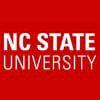Air velocity under heat stress affects heavy broiler live performance and breast meat yield without changing meat quality or welfare parameters
Published: January 7, 2020
Source : Edgar Oviedo-Rondon, Hernan Cordova, Viviana San Martin, Gustavo Quintana, Camila Alfaro, Ivan Cardenas, Ivan Ospina, Miguel Chico, Bing Cheng, Yijia Zhao, Derek West, Lingjuan Wang-Li / North Carolina State University.
Heavy broilers with high breast meat yield are more susceptible to heat stress. Under high relative humidity, indoor air velocity (AV) becomes critical to offer optimal environmental conditions for growth and health. Four experiments were conducted under southeastern summer conditions to evaluate the effects of AV treatments (High vs. Low) on live performance, cut-up yields, meat quality and welfare parameters such as footpad dermatitis, hock burns, and leg angular deviations incidence of broilers raised from 28 to 61 d of age. In all experiments, a total of 264 Ross 708 28 d-old male broilers were randomly placed into 6 chambers for 3 replicates per AV treatment of 44 birds each. Broilers uniform in BW at 28d were fed grower, finisher and withdrawal diets in pellets. The AV of each chamber during each day were automatically adjusted to target broiler comfort zone according to environmental conditions and age, with average difference between treatments of 0.5 m/sec. Individual BW and incidence of leg problems were evaluated at 28, 42 and 61 d. Feed intake per chamber was recorded. Flock uniformity and FCR were calculated for each period. At 62 d of age, 18 broilers per chamber were processed, cut-up yields and breast meat quality evaluated. Data from all experiments were analyzed using the MIXED procedure of the SAS and arranged as a RCBD. Experiment was the blocking factor with chambers as the experimental units. Treatments were the fixed effect and the chamber effect was nested within treatment and considered as a random effect. The High AV improved (P < 0.05) BW gain (331 g) and FCR (18 points) in all periods and flock uniformity only at 61 d of age. The High AV also enhanced (P < 0.05) breast meat yield (0.79%) by increasing (P < 0.05) Pectoralis major muscle development. No effects (P > 0.05) of AV were detected on carcass, cut-up parts yields, meat quality (pH, cook and drip loss and shear force), pectoral myopathies (white striping, wooden breast, and spaghetti muscle), footpad dermatitis, hock burns, and bone relative asymmetry. Meat color was affected (P < 0.05) in 3 experiments. In conclusion, higher AV improved heavy broiler live performance, flock uniformity and breast meat yield without major impacts on meat quality or welfare parameters.
Key Words: Heat stress, broiler performance, ventilation air speed, meat yield, animal welfare.
Abstract presented at the International Poultry Scientific Forum 2019 in Atlanta, USA.
Related topics:
Authors:

Smithfield Foods, Inc.

CJ Bio
Show more
Recommend
Comment
Share
2 de mayo de 2022
Fully agreed with your research.
This has happened in the poultry industry since last 2 decades as Geneticists were selecting birds with maximum breast meat, without much considering health care. This has put tremendous pressure on the growing bird particularly on heart and lungs, causes severe health issues and less susceptible to heat/disease.
Thanks for posting...
Recommend
Reply

Would you like to discuss another topic? Create a new post to engage with experts in the community.



















